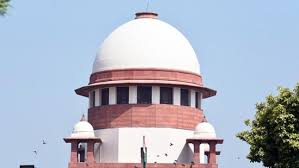The appellant did not place any document on record by way of the treatment summary or medical certificate of his wife to demonstrate that she was seriously ill and required his presence for constant treatment. Instead, a bald statement was made by him during the Summary of Evidence to the effect that he had remained absent without leave on account of his wife’s ill health. Moreover, the appellant failed to cross-examine any of the prosecution witnesses produced by the respondents during the Summary of Evidence conducted on 12th July, 1999. It is noteworthy that during the course of the SCM conducted on 24th August, 1999, after the charge sheet was read out and explained to the appellant when he was asked whether he pleaded guilty or not to the charge preferred against him, he had categorically answered in the affirmative, by stating “Guilty”. In other words, the appellant pleaded guilty to the charge levelled against him of having failed to rejoin duty on expiry of the leave granted to him from 8th November, 1998 to 15th January, 1999. (Para 8)
It is also relevant to note that this was not the first occasion when the appellant had remained absent without leave. He had made a habit of remaining absent without leave even on earlier occasions. (Para 9)
It is apparent from the above table that the appellant was a habitual offender. There were four red ink entries and one black ink entry against him before the present incident cited at serial number (f) above. Such gross indiscipline on the part of the appellant who was a member of the Armed Forces could not be countenanced. He remained out of line far too often for seeking condonation of his absence of leave, this time, for a prolonged period of 108 days which if accepted, would have sent a wrong signal to others in service. One must be mindful of the fact that discipline is the implicit hallmark of the Armed Forces and a non-negotiable condition of service. (Para 10)
Therefore, citing the table of punishments listed under the Schedule appended to Regulation 448 to urge that for absence without leave or for overstaying leave, the normal punishment being rigorous imprisonment for three years or less to be undergone in military custody, punishment of dismissal from service could not have been inflicted on the appellant by the SCM, is unacceptable. Sufficient discretion vests in the SCM to inflict a higher punishment in the given facts and circumstances of a case. Same is the position under Sections 72 and 73 of the Act. Both the sections leave it to the discretion of the Court Martial to award a particular punishment, depending on the nature and degree of the offence. There is no merit in the submission made by learned counsel for the appellant that the said provisions are not applicable to a SCM. (Para 16)
For the aforesaid reasons, we do not find any infirmity in the impugned judgment passed by the AFT. The appellant had been taking too many liberties during his service and despite several punishments awarded to him earlier, ranging from imposition of fine to rigorous imprisonment, he did not mend his ways. This was his sixth infraction for the very same offence. Therefore, he did not deserve any leniency by infliction of a punishment lesser than that which has been awarded to him. (Para 17)
SUPREME COURT JUDGMENT
Citation: 2023 STPL(Web) 114 SC
Ex Sepoy Madan Prasad Vs. Union of India and others
Civil Appeal No. 246 of 2017-Decided on 28-07-2023
https://stpllaw.in/wp-content/uploads/2023/07/2023-STPLWeb-114-SC.pdf







